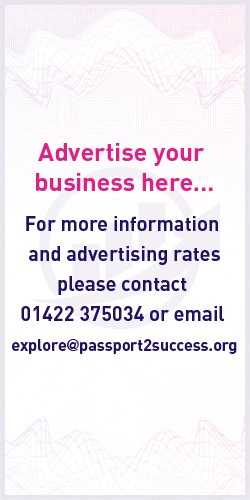Hi and welcome to the Passport 2 Success podcast, where in this week’s podcast we talk about how you can take some lessons away from Mark Zuckerberg’s thoughts and ideas that helped make him one of the richest people in the world.
But before we get into the podcast, just like every week, we’re going to show you a tool that you may want to try in your business. This week’s tool is called When I Work. This tool is perfect for businesses who have shift workers of any kind. Instead of having endless emails, sticky notes and phone calls to organise your weekly or monthly shift calendar, When I Work will keep track of employee availability, create a balanced shift schedule, notify employees when they work and let them trade shifts with team members. All that’s needed from you is to set your requirements and approve the final schedule. You can use it for free for up to 75 users and it does offer paid options for more advanced features. It sounds great for a small business to use, say for example a sandwich shop, or something along those lines. Check it out at wheniwork.com.
Now onto the podcast.
Listen on your favourite player
Zuckerberg had a lot of difficult times earlier on with the creation of Facebook, with one of them being when Yahoo came along and offered to buy out Facebook for $1 billion. This ended up being a pivotal turning point in the company.
Normally they’d just come in to work and do what they thought was the right next thing to do, whether it was opening Facebook to more schools or launch more photos etc. The issue was that they already had 10 million people using Facebook and they weren’t sure whether or not they were going to succeed beyond that and this was the first point where they had to stop and really think about the future of Facebook.
After a huge number of discussions amongst themselves and their investors, though a lot of people interested in the company thought they should sell whilst they can, Mark Zuckerberg and Dustin Moskovitz, both co-founders of Facebook decided that they thought they could get beyond the current number of users they had and really turn Facebook into something successful and therefore turned down the offer.
This allowed Mark to see that a lot of the people who joined didn’t align with his vision, which he blames partly on himself because he suggests that he didn’t communicate what him and Dustin were trying to do correctly to the rest of them, because a lot of the investors and workers thought that the $1 billion offer was a huge win and this caused a large amount of tension. So much tension in fact that after declining the offer, a huge amount of the company quit because they didn’t believe in what they were doing.
Now, a lot of people may have ripped your arm off for the $1 billion offer, but if you think about what both Mark and Dustin would have been seeing, he’d have had metrics up to his eyeballs which will have shown him that Facebook was heading in a pretty good direction.
You have to remember as well when Yahoo came in with this offer, Mark Zuckerberg was only 22 years old, imagine saying no to $1 billion at 22, people would think you’re crazy! But perhaps he said no because of the 10 million users and $20 million in revenue Facebook had made over 2 years of being active.
What is interesting as well is Peter Thiel, who was the co-founder of PayPal and an earlier investor in Facebook tried to convince Zuckerberg to sell to Yahoo. But looking back now I bet Zuckerberg is happy he didn’t listen. This is also interesting because if you look at what Facebook is doing at the moment, they’re trying to take market share from PayPal with the introduction of Facebook Messenger payments.
Next, we look at how Zuckerberg went about making big changes to Facebook, he said: “When you do stuff well, you don’t have to do big crazy things.” When Facebook first started off, there was no news feed that showed you updates of what people where sharing, they only had profiles. But what they found was people would just click around. They’d click on different profiles and they’d go on their friends’ profiles to see what they’d changed on a daily basis.
When things are working well you use data and the feedback you’re getting from the community and how they’re using your product, this then tells you what problems they want you to go and solve. You then have to use your intuition to think about what the solution to those problems might be and test them by gradually rolling them out, using testers to try out the new solutions to your product or services and use their feedback and data from that to give you a sense of which direction to go.
You have to be willing to make big moves when they pop up. Zuckerberg in an interview mentions how they bought the oculus team for a lot of money and mentioned that if they’d have done a better job of building up some of the expertise required to do it internally, then maybe they wouldn’t have had to do that, but you can’t be ahead of everything so it’s better to make big moves rather than have pride and never make the move.
What’s interesting is how he was using his intuition, it didn’t light up in headlights for him to create a news feed so people could see what their friends are doing, all he saw was people visiting friends profiles looking for updates on a daily basis so he had to think about how he could solve the issue or making it easier for the users to see these updates.
Most people come to you with problems and the way you have to be competitive is by providing the solution, if you don’t then they’re going to go elsewhere. Intuition is a key part to success, it’s what the majority of successful business owners have.
An interesting report found that around 25% of adults have intuition as their pre-dominant trait, where 75% have the opposite, which is sensing. If you have sensing, you have to experience the Facebook news feed before you can provide feedback whereas if you have intuition, you come up with the idea of a news feed instead and then start pulling in data.
Don’t worry if you don’t think you have the best intuition, it’s something that can be learnt, you don’t have to be born with it!
Zuckerberg mentioned about what he was excited about in the next 20 years for Facebook and he explained that in the next 10 years they have three main points they’d like to cover; connectivity, mainly getting most of the globe on the internet as over half of the population doesn’t have access to the internet and if you want to solve a lot of the challenges of the world today, it’s not just a problem that one country can solve, it involves coming together and giving everyone an opportunity into helping them.
A.I is the next point they’d like to cover over the next 10 years. Zuckerberg believes that this is going to unlock a huge amount of potential on so many different domains. It’s used on Facebook through showing people content they’re going to find more meaningful or connecting with people you actually care about. But it has so much more potential to ultimately make Facebook and any job, it could be Doctors, Construction workers, Banking etc. much easier to work with, meaning jobs can be completed quicker and to a better accuracy.
And the final thing is virtual reality and augmented reality, which Zuckerberg believes will become much bigger than mobiles, tablets etc. He believes that it’ll help people to become more creative and experience what other people are feeling with much more immersivity than we can through video.
It’s interesting to see what he finds important when we’re moving into the future. Everything he considers incredibly important for Facebook has the potential to be life-changing for some businesses, especially A.I. If you haven’t seen or heard it, there’s a video of someone with a Google Duplex, which is a demo of a new A.I. Assistant and asks it to call a hair salon to make an appointment and another one to make a reservation at a restaurant, you need to listen to them, it’s absolutely crazy and really is incredible where A.I. has come over the past few years, which is why it’s completely understandable why it’s one of Zuckerberg’s main points for his 10 year plan. For you this might be more of a longer-term thing to think of, if big companies like Facebook are looking at this in the next 10 years you might want to look at it in 7-10 years and decide then how you want to proceed.
What’s interesting to see is how Zuckerberg has gone against the grain on some areas of his business, only to reap the rewards later on down the line, you need to be ready to take risks and use your intuition and data to take your business forward and where you ultimately want it to be. And the big key point of this is to think long term, don’t think short term. If Zuckerberg had thought short term he would have pocketed $1 million from Yahoo, but even in 2012, he pocketed revenues of $1 million every day.


0 responses on "Lessons From Mark Zuckerberg To Help You In Your Business [P2S Podcast]"